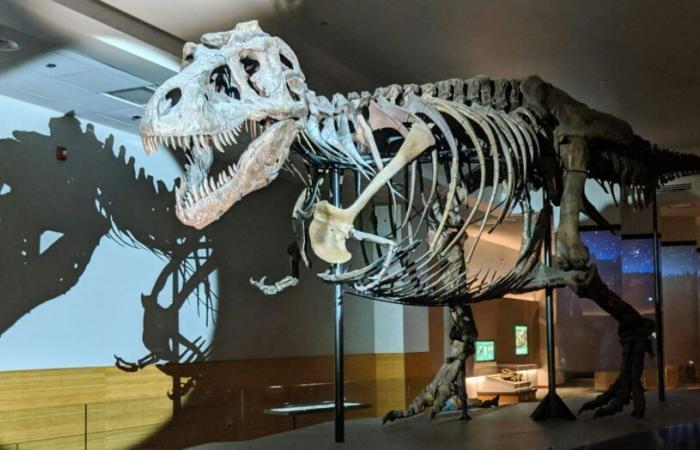In the running for the prize for “disgusting” news of the year: we suddenly think we understand better how dinosaurs conquered the world, thanks to the analysis of their vomit.
Amateurs already knew the word “coprolith”, which refers to fossilized droppings. They will have to add to their vocabulary “bromalith”, a more generic term which includes droppings, vomit (regurgitaliths), “intestinal contents” (coliths) and stones that certain animals swallow (gastroliths). As you might imagine, these “relics” can teach us a lot about what these critters ate.
A significant advantage for fossil experts: these bromaliths form good protection to protect their contents from the ravages of time.
And it can tell us much more than what these animals ate: in research published November 27 in the journal Naturethe authors write that this digested (or poorly digested) food reveals how these animals became dominant.
The approximately 500 droppings and vomit in question date back 200 to 230 million years, and were discovered over the years on Polish paleontological sites. Various technologies have made it possible to analyze its interior, and to confirm the existence of remains of insects, plants and fish. In the case of insects, almost intact fragments are found. In the case of fish, these are indirect traces, such as characteristic molecules of acids present in the oil.
200 million years ago was the beginning of the period when dinosaurs dominated the planet—until their sudden disappearance due to a cosmic collision 65 million years ago. And what these remains reveal is a diet that is not only varied – we are dealing with omnivores – but which grows over time: during these 30 million years, the size of the droppings and vomit in fact becomes three times bigger. A biologist would say that this is what happens to an “opportunistic” animal, that is, one capable of taking advantage of opportunities that present themselves in its environment to feed.
What’s more, very early in their evolution, these animals had a sufficiently varied diet to allow them, in the tens of millions of years to come, to survive changes in ecology: which would prove to be a advantage over overly specialized species.
Subscribe to our sprawling newsletter
Encourage us for the price of a coffee
Canada






